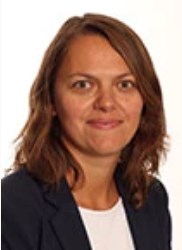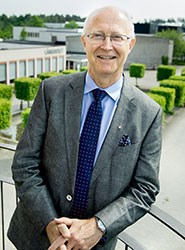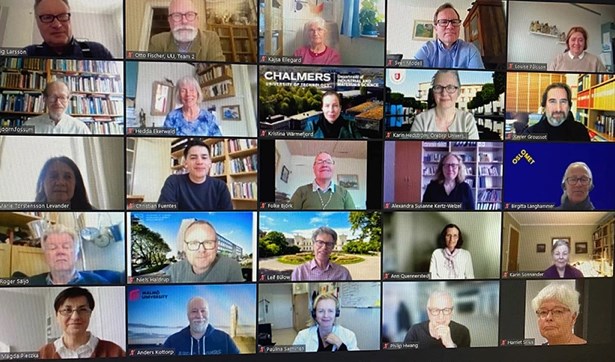Evaluation of university’s research complete – now the real work begins
For the third time, Örebro University has evaluated all its research. A major undertaking which was conducted online with external reviewers from eleven countries. The ultimate aim is to raise quality.
“It will be a while before we will see the result. Now we are going to take this forward – at all levels,” says Vice-Chancellor Johan Schnürer.

The research evaluation ORU2020 report
“A lot has happened since the first evaluation in 2010. Not least, in the sense that the university now has more researchers publishing more papers than before,” says Lavinia Gunnarsson, research coordinator at Örebro University, who has headed the evaluation work together with Professor Steven J. Linton.
This is indeed a development that is visible in international rankings. Örebro University was first included in the Times Higher Education rankings in 2015, and in 2020 in the purely bibliometrics-based ranking CWTS Leiden.
Bringing in help from external reviewers

Year after year, rankings have confirmed that Örebro researchers are frequently cited by other researchers. In other words, our research is disseminated and used, bringing benefits around the world.
For this evaluation, just as in previous ones, 2010 and 2015, the university first gathered data on scientific publishing, research funding and staffing. In self-assessments, researchers from within various subjects were then asked to complete self-assessments and submit a development plan focusing on strengths, weaknesses and possibilities.
The third and final step of the evaluation process meant bringing in help from external reviewers. 31 researchers from 11 countries were asked to review the quality of research and comment on the development plans.

“It is always a privilege to get to focus on formative feedback – strengths, potential and development paths – instead of simply being asked to provide a Pass or a Fail,” said Anders Kottorp, professor at Malmö University and one of the reviewers, after taking part in the assessment activities.
“The research evaluation is a tool with which to develop research at the university. But it is also an important part of our quality assurance system. Focus is on development, not on grading or making comparisons. The reviewers have done sterling work to help us and now we must all take advantage of the comments we have received and work tirelessly to raise the quality of our research,” says Vice-Chancellor Johan Schnürer.
Text: Linda Harradine
Translation: Charlotta Hambre-Knight
Photo: Örebro University, Kicki Nilsson, ICON
